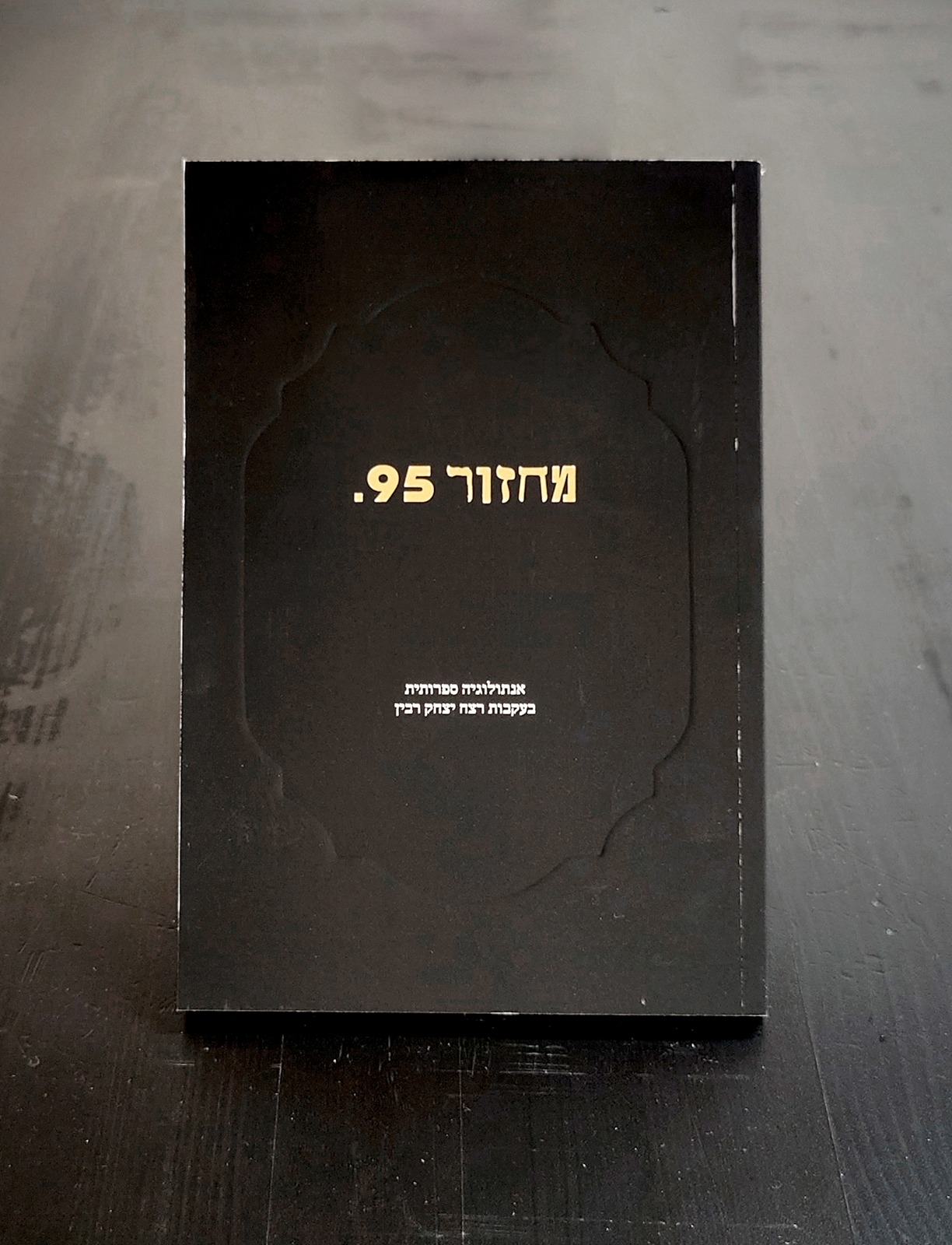
"Machzor [Cycle] 95" is a literary anthology which brings together poetry and prose around the theme of Yitzhak Rabin's murder, the culture-shifting assassination of Israel’s fifth Primer Minister on the 4th November 1995. This year’s edition was published in November on the 27th anniversary of the murder. Among the contributors are notable Israeli writers and artists such as rapper and actor Jimbo J, author Galit Dahan Carlibach, and poets Agi Mishol, Meir Wieseltier, and Mati Shemoelof. This is the second edition of Machzor 95 published by Dror LaNefesh, the publishing house of the Socialist-Zionist movement Dror Israel, after the first was released in 2013.
The editors now intend to publish a compilation every few years, reflecting the changing mindset of Israeli society in relation to the murder.
"The collection came out in 2013 following the editors' feeling that there is a lack of direct references to Rabin's murder in Israeli culture," Dafna Barshilon, one of the editors, told Davar. "There was that movie 'Incitement' a few years ago, there are some songs, there are some works where the murder is a background event, like the TV series 'Florentine.' But our culture lacks direct references to the murder and the severe and terrible trauma that followed it."
According to Barshilon, the idea in 2013 was to gather pre-published poems. Very few works in that initial publication were written specifically for the anthology. However, this newest edition is different:
“In the last three years we have started working on a reissue to give room for more voices and different perspectives on the story. This includes people who were part of the right-wing or religious Zionist population, young people who were born shortly after the murder or were very young children, or pop-culture references.”
Why did you call the book ‘Machzor 95’?
"There are two meanings: one is the sense of us as a generation; the sense of the Class of ‘95. The second meaning relates to cycles of tradition in Judaism. Something we return to every year, like the annual High Holy-Day prayer book which is known as a machzor. Our idea is to add more voices in every edition, to paint as broad a picture as possible of Israeli society and how it deals with the trauma [of Rabin’s assassination]. This trauma is a living thing, and it's important to reflect on its impact in present-day Israel."
Dr. Ilan Berkovich, a writer and regular literary contributor to the Haaretz newspaper, wrote the epilogue to the anthology and discussed it in an interview with Davar. The text itself was written two years ago at the height of the anti-Netanyahu protests in 2020. Reading the epilogue this week, after the elections in which the far-right won in a landslide, gives additional gravitas to the words.
"It was a risk to make the epilogue political," said Berkovich, "but here we are; [far-right extremist politician] Itamar Ben Gvir is probably going to be a government minister."

In the epilogue, Berkovich explores how Rabin’s murder has become a significant reference point in the contemporary Israeli political scene. From the infamous wording of the official announcement of Rabin’s death, to the ‘Song for Peace’ which was sung just prior to the assassination, to the question ‘where were you when Rabin was murdered’, the events of the 4th of November, 1995 have inherently shaped the country and its culture.
“Even though a generation has passed since the traumatic event, works in the anthology manage to revive the importance of these references so they don’t merely linger on as worn-out metaphors."

What place does the assassination hold in literature? Is there still more to be said 27 years later?
“This is already the second edition of the anthology, and the subject has by no means been exhausted, partially because of the rise of the extreme right who took part in the incitement around the murder. Ben Gvir was there, even if he says he is a different person. Israeli literature still hasn’t done enough soul-searching, and I’m not sure they (the far-right) will do it themselves.”
Does the anthology reflect a coming-together of Israeli society, or is it a platform that includes different opinions presented side by side?
"I know that Dror LaNefesh sees the assassination as something that we can learn from, but I still haven’t seen it develop connections between people. Polarization has only increased. There are some works in the collection that try to show the other side, such as the claim that the right-wing settlement movement was blamed for the murder. We put all of it together in one anthology, but the question is whether people can actually have open conversations about this in real life without immediately devolving into recriminations and each side closing its ranks. I don’t think that literature is meant to be a bridge, sometimes it needs to reflect what’s actually happening."
Berkovich pointed to one story in which a teacher tells his right-wing student, ‘you all killed Rabin.’
"Clearly on the factual level, he’s falsely accusing her, because of course there was only one murderer. But on the general, metaphorical level, there was a wave of factional incitement that can’t be ignored.
"Now I imagined what would have happened if Yair Lapid had won the elections and had talked about the two-state vision as he did before the elections. He would have also been subjected to waves of incitement. It is an unequal discourse. In the poem, the author [Moria Har] compares the murderer, who is contemptible, to the teacher, who is also contemptible, but he’s not. He carries pain with him. There is a discourse here that can be respectful, and the other side, if it doesn't suit them, breaks the rules."
What do you think future literature about the assassination will be like? There’s already a new generation of people who were born after the murder and didn’t experience that period for themselves.
“My daughter is 14, so she didn’t experience the murder like I did, seeing it on a live broadcast, so there’s already a distance that’s been created. Even in the language that my daughter’s generation uses, they say Rabin died and not that he was murdered. Whereas, anyone from my generation who sees Itamar Ben Gvir can’t disconnect [the murder from the extreme right]. So the literature can and should continue to deal with it.
“The right doesn’t apologize and even spouts conspiracy theories about the assassination. Israeli literature will continue to deal with this because the process is still incomplete.”
The anthology ‘Machzor 95’ was edited by Dafna Barshilon, Alon Bar, Dr. Ilan Yosef Berkovich and Dani Efrati and published by Dror LaNefesh. It is available for purchase (in Hebrew) here.
This article was translated from Hebrew by Hannah Blount.






